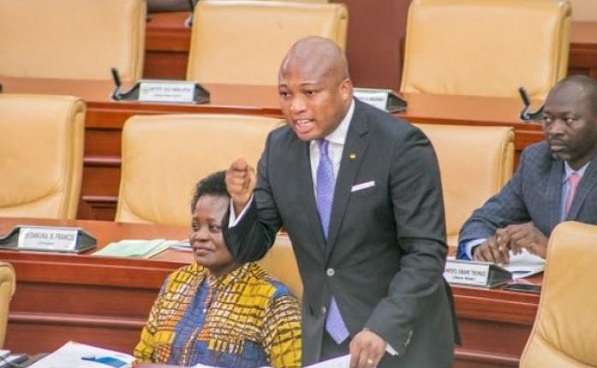Minister for Foreign Affairs, Samuel Okudzeto Ablakwa, has revealed that Ghana Technical Company (GTC), a private firm at the centre of the Washington Embassy scandal, was illegally generating approximately $4.8 million annually through services allegedly operated in collusion with staff at Ghana’s mission in the United States.
Addressing Parliament on Wednesday, June 18, 2025, the Minister disclosed that Mr. Ernest Fred Kwarteng, a staff member at the embassy and owner of GTC, was running a parallel visa and passport processing scheme. The enterprise redirected applicants from the embassy to Mr. Kwarteng’s private company, where they were charged additional fees for services meant to be rendered by the embassy.
Mr. Ablakwa said investigations have revealed institutional complicity, with both senior officials and regular staff supporting the unauthorised operation.
“Investigations reveal that GTC dispatched between 150 to 350 visas/passports daily. Therefore, on average, about 250 visas/passports were dispatched daily by GTC. This implies that on average, yearly, GTC dispatched approximately 62,500 visas/passports,” the Minister said.
He noted that Mr. Kwarteng earned approximately $1.85 million annually from courier services alone, with additional revenue coming from charging between $60 and $100 per applicant for assistance with form completion.
“By conservative analysis, Mr. Fred Kwarteng was making about $4.8 million annually from his unlawful enterprise,” he added.
Mr. Ablakwa further disclosed that the embassy had created an unofficial “welfare account” into which Mr. Kwarteng lodged proceeds from the scheme. These funds were reportedly used for unapproved activities at the mission.
“It is important to emphasise that there was no share of this amount to the Ministry [of Foreign Affairs],” the Minister said.
As part of immediate remedial actions, the Minister temporarily shut down the Ghanaian Embassy in Washington, D.C. to halt the illegal activities and begin comprehensive reforms.
The move, however, drew criticism from the Ranking Member of the Foreign Affairs Committee, Samuel Abu Jinapor, who described the closure as “hasty and counterproductive,” arguing that it had disrupted essential services to Ghanaians in the United States.





